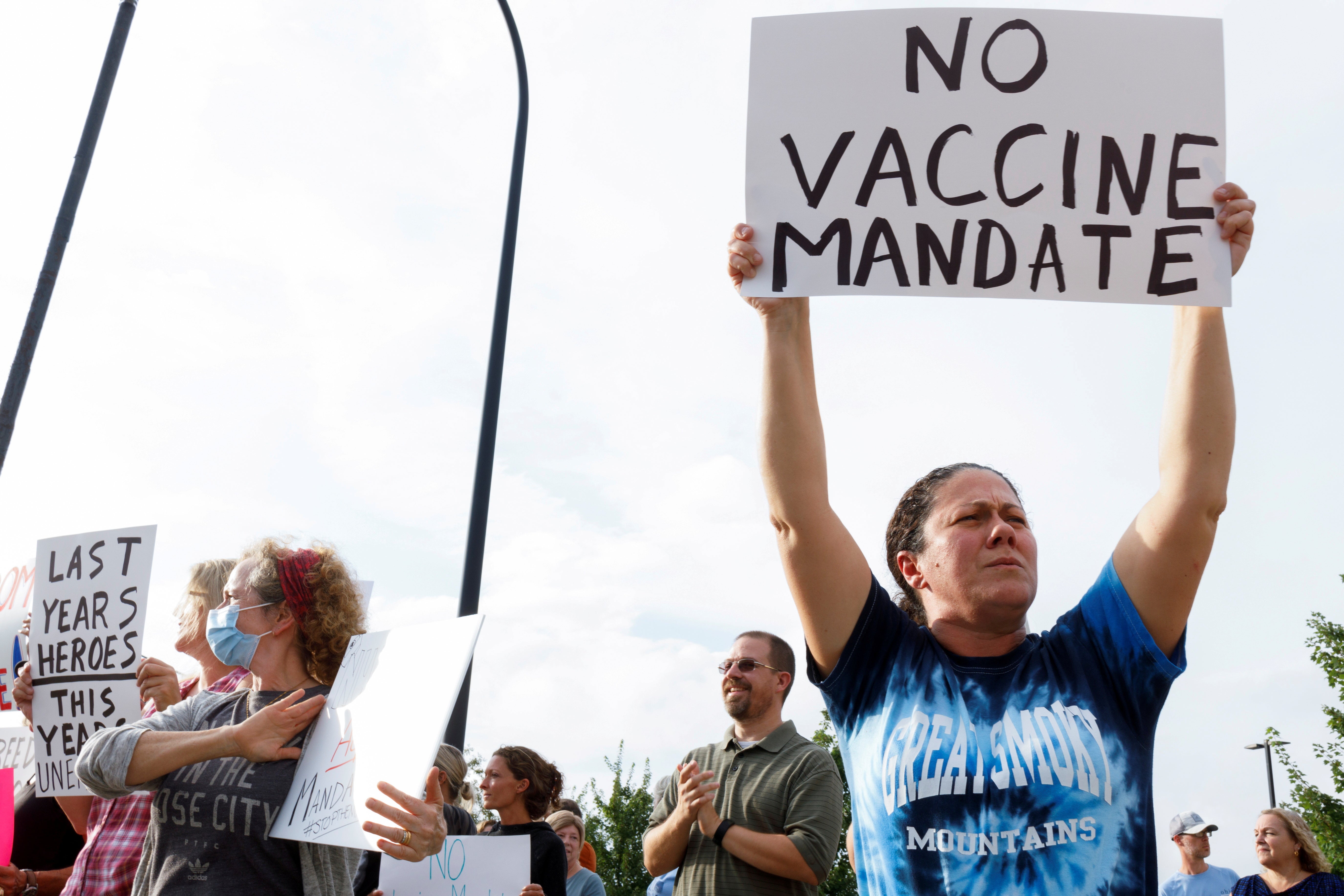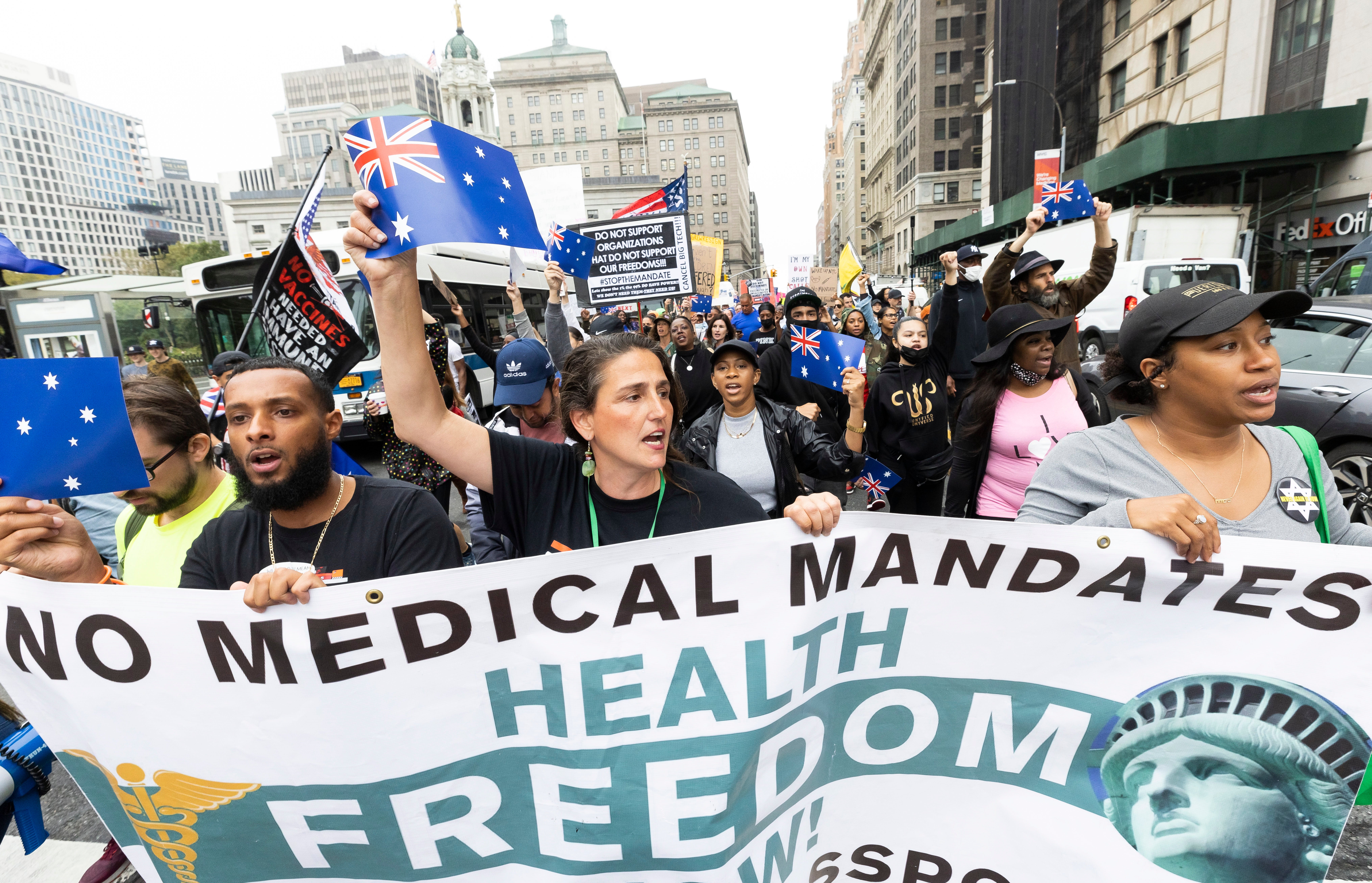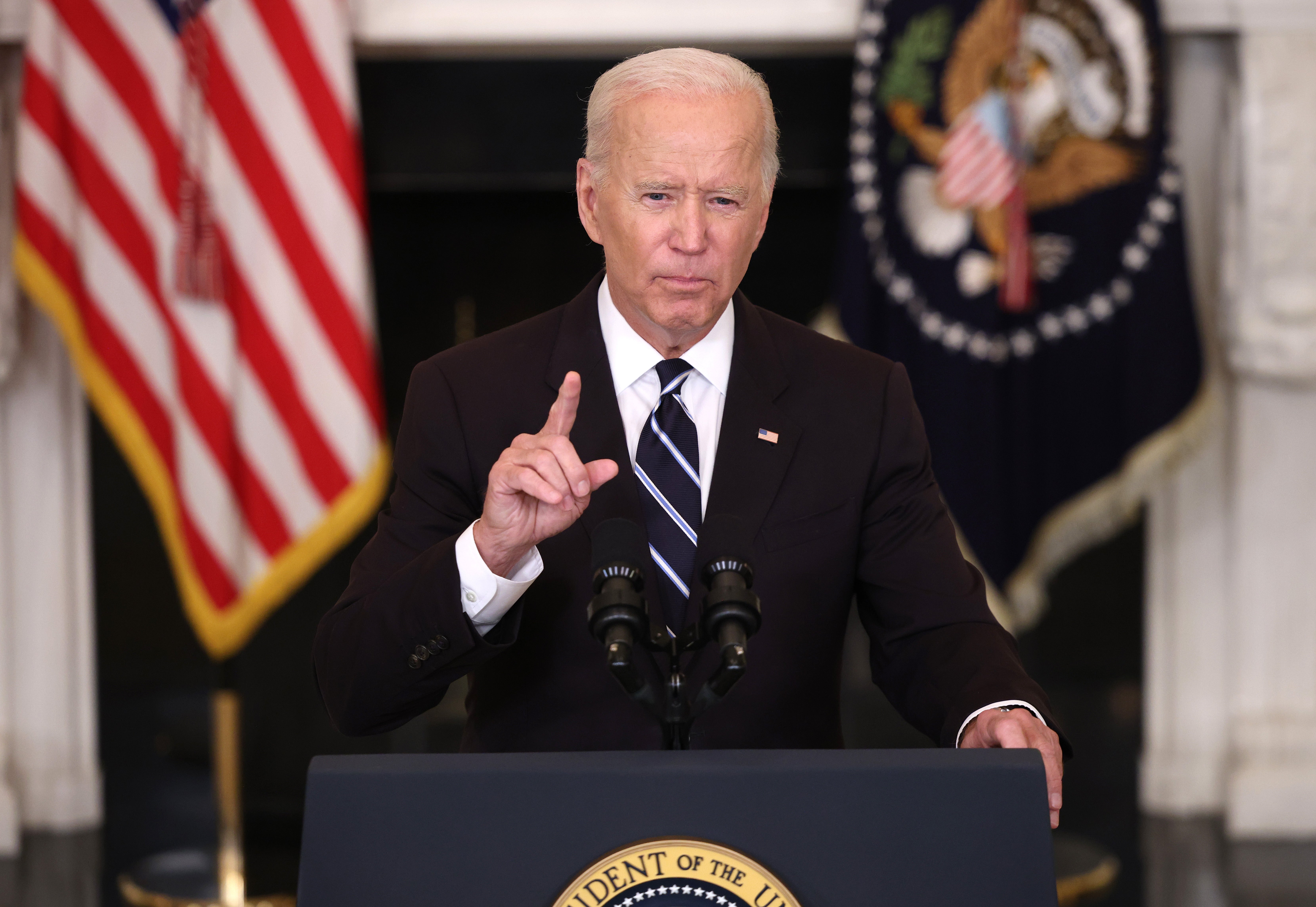Thousands are being fired for not getting the Covid shot. What happens now?
Everywhere from HR departments to ERs are under pressure as vaccine mandate deadlines approach. Sheila Flynn reports on the fallout

One North Carolina hospital system last week let go 175 unvaccinated employees. Another in Houston has fired 150. United Airlines could lose up to 600 staff members. New York schools are facing a potential shortage of nearly 3,700 workers. Firefighter unions from coast to coast are battling serious discord within the ranks as many first responders refuse to get vaccinated against the coronavirus.
Across industries and across the country, employer and government requirements are prompting some sceptical workers to quit rather than receive the inoculation against coronavirus. Many are highly skilled; it’s not easy to replace pilots and doctors, for example, in a matter of days, weeks or even months.
But deadlines for mandatory vaccinations are hitting and employers have to act. So the big question now is: what’s next?
No one seems to have the answers. And many left to cover the work are downright furious.

“There’s so much selfishness and ignorance surrounding this whole vaccine debate,” Dr Steve Runde, a rural Iowa primary care physician with 40 years of experience, tells The Independent.
“It’s probably going to be a way worse winter than last year, because you’re going to have less staff to do these things. You can’t just make somebody an RN. I mean, hospitals can give privileges to support staff; they can say, ‘Well, we’re going to let medical assistants – which is just a community college degree – come in and start doing more stuff.’ So that’s one way they can get around it.
“I know already a lot of hospital systems have said, we’re going to let retirees come in, even if they haven’t kept up their licensure ... because they have to. But you’re going to run out of those.”
The shortage of already-strapped skilled labour is the main issue as deadlines approach – though many industries keep extending those deadlines with added incentives in the hopes that employees will eventually fold and get vaccinated.
President Joe Biden directed last month that all organisations with more than 100 employees must require either vaccination or weekly testing. All government workers must be vaccinated as of December with no other option.
A recent survey of roughly 400 organisations by consultant Gartner found that about 20 per cent of respondents hadn’t decided how to handle the vaccine mandates and about 40 per cent could decide to give employees regular Covid tests rather than requiring proof of inoculation. Companies expect to lose between 2 and 8 per cent of their workforce “either because they quit or they’re terminated for noncompliance”, Bloomberg reported.

“If you’re at 2 per cent, you can live with that,” Brian Kropp, Gartner’s chief of human resources, said last week. “If it’s 8 per cent, that could be a real problem, especially if it’s concentrated in one place or in one department.”
Human resources departments are at their wits’ end, one adviser with decades of experience told The Independent.
“It’s been a wild time in the industry,” says Amy Zimmerman, the Atlanta-based chief people officer of Relay Payments who also runs her own coaching business.
“I think HR, in many ways, is an unsung hero in this 18-month saga, because we’re also the ones that have been managing all of the emotions and all of the adjustments.”
None of the effects are known yet as different sectors pursue legal action to fight against vaccine mandates and everyone waits for the outcomes. Court challenges are being routinely struck down, with Supreme Court Justice Sonia Sotomayor on Friday, for example, refusing a request to block New York City’s vaccine mandate for public school employees.
They may not be as bad as expected though, according to some experts.
“This is not the first time that we’ve been here with issues like this,” Dr Lee Newman, director of the Centre for Health, Work & Environment at the Colorado School of Public Health, tells The Independent.
“It’s the first time for Covid, but it’s not the first time for other infectious diseases or other hazards related to the workplace.”
He adds: “When these kinds of mandates went in place for influenza in healthcare, people said, ‘Oh, we’re going to lose a lot of people, they’re going to quit, they’re going to refuse to get vaccinated and quit their jobs’. But in fact, that didn’t turn out to happen very much. There were very few people who left their positions.

“And accommodations were made to be able to still have people be able to work safely” who received religious or medical exemptions, he says. “We did not see major shortages happen.”
Americans have already complied for decades with vaccine mandates for school entry, drug testing and regulations as simple as requiring a license for driving, he points out.
“I think that we will not see as much of an exodus as is being discussed right now,” he tells The Independent, adding of the non-compliant workers: “Those people all might not even still leave.”
He concedes, however, that past requirements were not compounded by “the level of misinformation and dissemination of just flat-out wrong information spread so far and wide.
“I’ve never seen this political polarisation in public health in my career.”
That’s extremely evident in industries requiring hands-on work – many of them federal employees – where remote options, removing the vaccine requirements from the equation, don’t exist. These have also been the fields arguably most affected by Covid; illness, burnout and fear of exposure had already led to staff shortages. Yet inordinate numbers of everyone from nurses to firefighters still voice opposition to the mandates. And their industries are struggling to implement contingency plans.
New York mayor Bill de Blasio said last month that the city had “thousands and thousands” of vaccinated, experienced substitute teachers ready to go.
“Any situation where additional staffing is needed, we have staff that can be deployed very quickly to wherever they’re needed in the city,” he said.
But over the weekend, the NYC Department of Education sent an email seeking substitutes to fill 3,659 gaps across the system in coming months, the New York Post reported.

Hospitals were already facing a Covid-fuelled nursing crisis, whether people were leaving because of family situations, illness, fear or options to take more lucrative travelling contracts. A pilot shortage already existed, too.
So another question is: what’s next for them?
“What are people doing? If these nurses or pilots or cops are quitting because they don’t want to get vaccinated, how are they supporting themselves?” Ms Zimmerman says.
One nurse in Texas, who took a case against the hospital for requiring vaccine mandates, said in subsequent interviews she’d taken work, astonishingly, as a home health aid. Pilots could swap to air ambulance services, which are also totally understaffed and overworked as Covid overwhelms them.
Those services – requiring highly trained flight and medical personnel – have been “seeing a growth in recruitment efforts” though “we’re not necessarily seeing a good growth in recruitment in terms of actual employees,” Chris Eastlee, vice president of public affairs at the Association of Air Ambulance Services, told The Independent last month.
That could be an outlet for some professionals, but what about firefighters, where there has been particular opposition to vaccination?
It remains unclear, but even unions appear to be changing their tune. In August, the International Association of Fire Fighters issued a release saying it was “continuing to closely monitor the rapidly evolving situation relating to Covid-19 vaccines and concerns regarding potential vaccine mandates, as well as fielding inquiries from IAFF members who are opposed to the vaccine for various reasons”.
By early September, however, IAFF general president Edward A Kelly was appealing for members to “Join me and film your own video message asking your fellow union brothers and sisters, family members and neighbours to get the vaccine and post, tweet, lead!”
In the meantime, with extended deadlines or not, vaccinated workers across industries are picking up the slack and holding their breath as employers struggle with how to face the crisis.
“We’ve never done this before, so it is new,” Ms Zimmerman tells The Independent. “And we’re all kind of figuring it out.”
Join our commenting forum
Join thought-provoking conversations, follow other Independent readers and see their replies
Comments


Bookmark popover
Removed from bookmarks